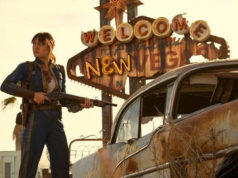I don’t play poker. I missed out on the whole craze that ignited and then waned earlier in this decade.
I’m still not sure whether a flush beats a straight. (I looked it up. It does.) Yet I’m amazed at how well I’m able to follow the game and how much strategy and jargon I’ve absorbed, just from having seen so many movies about it. Specifically, about Texas Hold ‘Em, which relies heavily on players’ ability to read other players and thus makes for gripping drama. Deal, which hits theaters this week, is the latest and least interesting such film.
The gold standard for movies about poker remains John Dahl’s Rounders from 1998, but never mind that. Deal doesn’t even begin to measure up to lesser stuff like Curtis Hanson’s Lucky You from last year, or Zak Penn’s The Grand, which just opened and closed within the same week over in Dallas. Those films had unusual characters, conceived and performed in non-stereotypical ways. (They were both fatally flawed, though. The Grand simply wasn’t funny, a problem for a movie that’s supposed to be a comedy.) On the other hand, Deal sticks wearily to decades-old screenwriting templates, which is why it feels so played out.
Here’s what passes for the plot: Alex Stillman (Bret Harrison, who has done most of his work on TV) wins enough pocket money at online poker to make him decide to try his skill in the real world instead of clerking at his dad’s law firm. The 21-year-old’s tournament play attracts the notice of Tommy Vinson (Burt Reynolds), a burned-out old pro who back in his heyday once beat Doyle Brunson in a tournament. Despite not having played a hand in 20 years, Tommy agrees to tutor Alex in the game’s finer points because The Kid Has Potential.
How Alex’s game improves under Tommy’s instruction is rather mysterious, because director/co-writer Gil Cates Jr. fumbles the relatively simple task of generating tension from the poker games. Texas Hold ‘Em may harbor more possibilities for drama than blackjack, but Cates inexplicably denies us key information by forgetting to show us the flop cards or inform us of the players’ chip count. By contrast, the stubbornly unexciting Lucky You nevertheless did a much better job of tracking the games.
No surprise that Cates also loses the thread with his characters. Charles Durning pops up in a supporting role that makes no sense at all, and Alex’s romance with a casino patron (Shannon Elizabeth, who’s now more famous as a real-life poker enthusiast than as an actress) goes nowhere. Even Tommy’s story arc doesn’t track, which is too bad because Reynolds – once the world’s biggest movie star – does some credible work as an anonymous guy living a life that’s smaller than he thinks it should be. These make Deal fizzle out. If you want poker drama, you’ll get a higher grade of it by watching the games that air on late-night TV.
Deal
Starring Bret Harrison and Burt Reynolds. Directed by Gil Cates Jr. Written by Gil Cates Jr. and Mark Weinstock. Rated PG-13.











